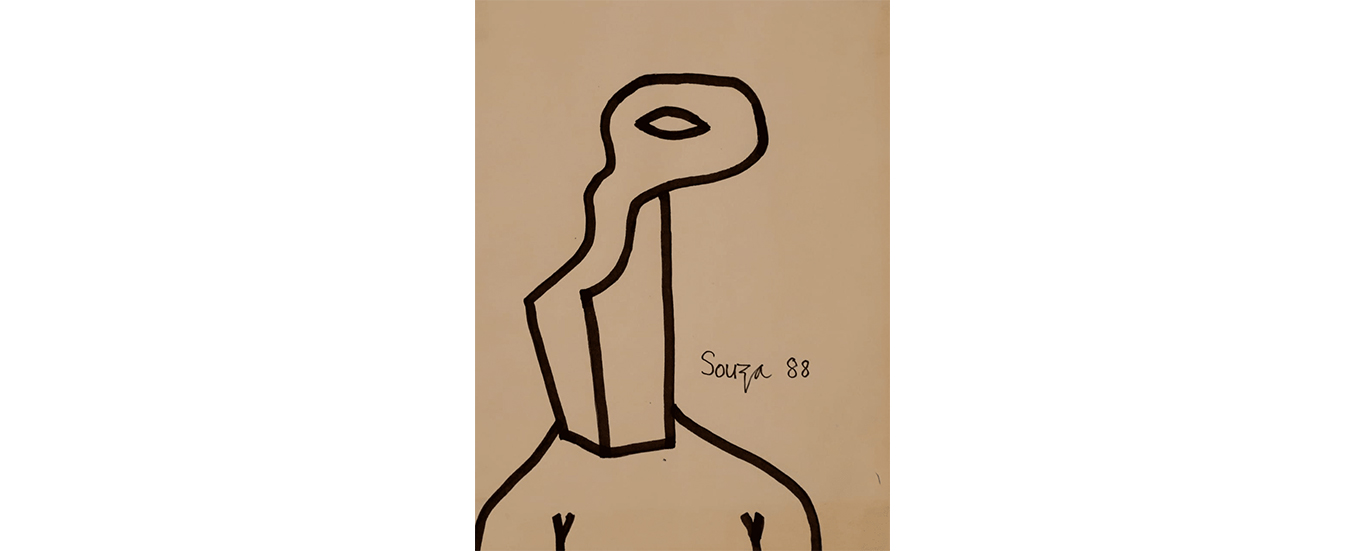Medium: Pen and Ink on Paper
Size: 11x 8.5
Provenance: Christie's
Estimate: ₹ 2,00,000 - ₹ 3,00,000
Francis Newton Souza was born in 1924 in Saligao, Goa. After losing his father at a very young age and being afflicted by a serious bout of small pox, he vowed to go about life his own way. He was expelled from the Sir J.J. School of Art, Bombay and later, as he insisted on saying, from his own country. He would shift continents before settling in New York for the Goa born artist , who was bought up by his Catholic mother to become a priest, showed early signs of rebelliousness, that was to become an integral part of his life. His rebellious nature made him join the Communist Party which he soon rejected. He was also the founder member and spokesperson of the Progressive Artists’ Group which he later abandoned in order to pursue a painterly career in Europe.
Souza chose to lay bare the ugly and grotesque in everyday life, without any embellishments whatsoever. Closest to European modernism, Souza is known for his inventive human forms, the heads in particular. Souza’s work is not pleasing to the eye, rather it lashes out at the eye, challenging the human eye’s very notions of beauty and aesthetics. The large heads with the exaggerated features exude an almost childlike vulnerability, yet very macabre at its core. Souza’s heads portray the vulnerability of the underdog, those who lives on the fringes of the modern metropolis. The subjects of his interest are not grand and beautiful people – it is rather the grotesque other of that celebrated aesthetics, that ugliness that is shoved off under the carpet. Just as Souza’s heads become symbolic of the fragmented human subjectivity, the nudes portray the exaggerated female form, not with voluptuous beauty like Hussain’s women but rather with the characteristic ugliness and coarseness that is closer to life.


 Authenticity
Guarantee
Authenticity
Guarantee Bid in auction or buy now
Bid in auction or buy now